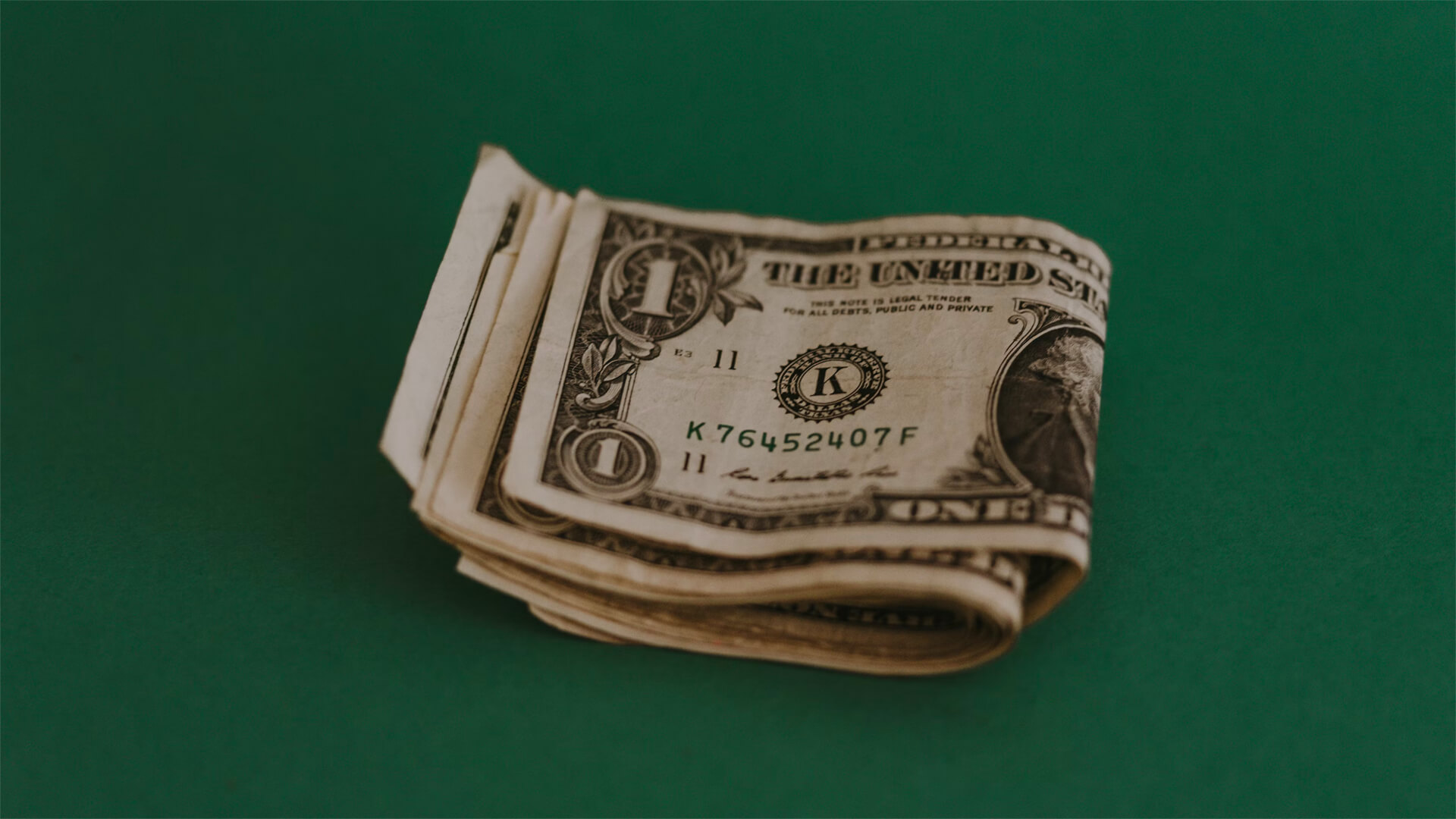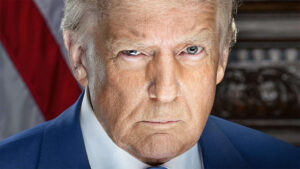The topic of de-dollarization is like the weird cousin no one wants to talk to at parties. They only come around once every year or two, and most of what they say is complete bulls***. But when the day comes that you need to take that weird cousin (aka de-dollarization) seriously, here are the three factors to look out for.
#1 Size – To be a currency of exchange, trade, and reserve, a currency must exist in a massive volume. Only four currencies meet the size requirement: Dollar, Euro, Yen and Yuan.
#2 Access – You need to be able to get ahold of a (nearly) unlimited supply of said currency at the drop of a hat. The Dollar comes out on top in this category, with the Yen and Yuan unable to provide the necessary level of access.
#3 Trust – You must feel secure that the chosen currency is a safe store of value and that the government will not intervene. This makes the currency a subset of trade, and if the country in charge wants to micromanage the value on a daily basis, it won’t work.
Several countries have been shouting from the mountaintops that they want to move away from the Dollar. I don’t take most of these too seriously, but one country is seriously considering de-dollarization, and we’ll talk about that tomorrow…
Prefer to read the transcript of the video? Click here
Here at Zeihan On Geopolitics we select a single charity to sponsor. We have two criteria:
First, we look across the world and use our skill sets to identify where the needs are most acute. Second, we look for an institution with preexisting networks for both materials gathering and aid distribution. That way we know every cent of our donation is not simply going directly to where help is needed most, but our donations serve as a force multiplier for a system already in existence. Then we give what we can.
Today, our chosen charity is a group called Medshare, which provides emergency medical services to communities in need, with a very heavy emphasis on locations facing acute crises. Medshare operates right in the thick of it. Until future notice, every cent we earn from every book we sell in every format through every retailer is going to Medshare’s Ukraine fund.
And then there’s you.
Our newsletters and videologues are not only free, they will always be free. We also will never share your contact information with anyone. All we ask is that if you find one of our releases in any way useful, that you make a donation to Medshare. Over one third of Ukraine’s pre-war population has either been forced from their homes, kidnapped and shipped to Russia, or is trying to survive in occupied lands. This is our way to help who we can. Please, join us.
CLICK HERE TO SUPPORT MEDSHARE’S UKRAINE FUND
CLICK HERE TO SUPPORT MEDSHARE’S EFFORTS GLOBALLY
TRANSCIPT
Hey everybody. Peter Zeihan here coming to you from Colorado where the weather can’t decide what it wants to do. Today it’s sunny, so, you know, we’re going to work with it. A lot of you have written in asking me about all this hullabaloo about de-dollarization that comes up every year or two. And so I have to explain it again. Fundamentally, nothing has really changed this time, but let me give you the three things to look for if you do want to take de-dollarization seriously in the future, this is not the time.
Number one size. For a currency to be a currency of exchange, a currency of trade, and especially a currency of reserve. It has to exist in huge volume because that’s a lubricate trillions of dollars of financial transactions and physical transactions every single day, and something in excess of $25 – 30 trillion of annual merchandise trade. That’s a lot. And there are really only four countries in the world, four currencies in the world can even theoretically do that. The U.S. dollar, the European euro, the Japanese yen and the Chinese yuan. Number one.
Number two, access. You have to be able to get a hold of nearly unlimited volumes of that currency whenever you want to. Obviously, the dollar scratches that itch. The Japanese yen, not so much. The Japanese tried to go global back in the 1980s. It turns out their financial system couldn’t handle it and it contributed. It was one of the many factors as to why they have had on average 0% growth since 1993, 94 or something like that. And so they have kind of closed up shop. The currency is available. You can add it to the side, but it’s never going to be a mainline exchange currency. Let’s see, China is eliminated from that category as well. The number one concern that the Chinese have is for control. Absolute, domineering, dictatorial control over their own internal financial sector. That means they don’t want to see large cross-border flows, especially from China to the rest of the world. So every once in a while, the Chinese will do what they’re doing now and talk up the yuan and talk up internationalization. Then as soon as that starts to happen, a flood of currency from the Chinese goes elsewhere because the Chinese are the people who are the least confident in their own economic system. And then the Chinese government slams it shut and we don’t hear about it for a couple years again…like we are now.
Okay. What’s the other big one? Trust. You have to trust that the currency is going to be worth something. You have to trust that the government is not going to intervene. And that means this is kind of a subset of trade. Now, with trade, if you are a major trading country and a large percentage of your GDP is gotten from exports and imports, then you have a vested interest in what the value of your currency is every single day. The U.S. is perfect for that because the U.S. trade to GDP ratio is only about 15%, and about half of that is either energy or NAFTA. And everything else falls into that other like six, 7%. So the United States really doesn’t care what happens to the value of occurrence every day. The Chinese don’t have a freely traded system, so they can micromanage what the value is every single day. There’s also the issue of whether your money’s going to be there the next day. Now, the United States maybe is taking a hit on this with the Russia sanctions and that it’s weaponized the U.S. dollar in a few ways. But compare that to, say, what goes on with monetization. Now, I know I know a lot of you folks out there who are like gold bugs are like, oh, the U.S. monetizes like mad. And, you know, there’s something to be said for that. We do have a large money supply. It’s probably bigger than it needs to be. But a couple of things to keep in mind. It’s been shrinking for the last year as all the stimulus efforts from the last 15 years because of COVID and financial crisis and everything else have finally wound down. It’s going in the right direction. And second, I compare it to everyone else the Japanese, the Europeans, and especially the Chinese print currency in far greater volumes in the U.S. does. So the U.S. currency is the primary finance currency. It’s a primary currency. And everyone’s foreign reserves, the primary trade currency is the primary store of value. The Chinese yuan is none of those things. In fact, 99% of the issued currency of the Chinese yuan is held within the Chinese system. But their money supply is bigger than the United States because they print currency so ridiculously. So if you want to use that as a reason and talk down the dollar, that’s fine. Just make sure you apply the same criteria to everyone else. Because the yen and the U.S., even though the Japanese economy is less than a third of the size of the U.S., it’s about the same currency exchange. And the euro is bigger, too. So the U.S. runs the least bad ship, if that’s the right way to look at it. And then finally, of course, there’s the euro. The Europeans for a long time have been looting the U.S. dollar as a coequal currency, if you will. The European euro should be right there with them, but they confiscated insured bank deposits back when they had the financial crisis in the late 2000, early 20 tens. And as a result, anyone who could move their money out of Europe did. So. It’s a regional currency that’s not nothing, but it’s no longer a serious contender for any sort of broad, dominant international role.
There are a couple of other countries that have started to kind of join the shouting on this topic, but I don’t take those seriously either. One of them is Bangladesh. Bangladesh has recently publicly pledged that the nuclear power plant that they’re planning on buying from the Russians will be paid for with rubles. Yeah, that means nothing because the Bangladeshis don’t have the money to buy a nuclear power plant. So to pledge for something that’s never going to happen in a currency that they don’t have yet, whatever. And then there’s Argentina who says it’s gung ho to join any sort of not-dollar system. The Argentines are trailblazers in many financial matters, but currency adoption is not one of them. They’re basically looking for a currency that can be printed without causing inflation for them and without them having to pay back and foreign currency later. So, you know, I wouldn’t take that too seriously either.
Now, all that said, there is one country out there that is seriously considering and maybe even implementing a degree of de-dollarization because it doesn’t care about these factors. It has something else that is driving its decision making. And we’ll talk about that tomorrow.








